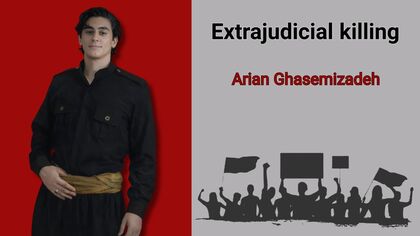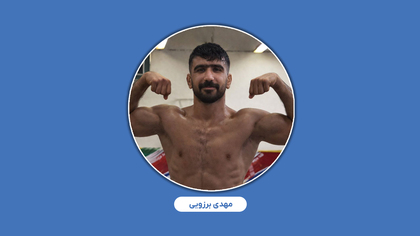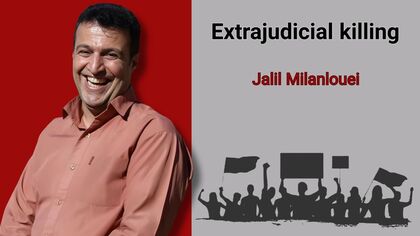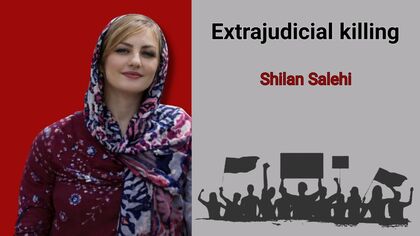Study: Iran has strong democratic tendencies and considerable potential for regime change
05:16 - 15 May 2012

A small team of Israelis, headed by political strategist Yuval Porat, decided to explore the driving forces of Iranian society, claiming that \"in the high-stakes of international discussions surrounding Iran\'s pursuit of nuclear weapons, Iran\'s 80 million people are often forgotten.\"
\"There have been signs, on the streets and over the Internet, of a battle raging between the country\'s Islamic fundamentalists and the proponents of freedom,\" Porat wrote in the article published Monday in the Wall Street Journal.
Porat claimed that the question his team set out to explore was \"where the majority of the Iranian people stood?\"
The Israeli researcher said that his group was composed of leading experts in the fields of social psychology, cross-cultural research, the Shiite Muslim religion, statistics, and dozens of Farsi-speaking volunteers.
In the article, Porat explained that his research team conducted telephone interviews in late 2011 and in early 2012 with nearly a thousand Iranians from the country\'s 31 provinces.
Porat said that in order to overcome the challenge of measuring the potential for freedom and democracy in an autocratic country like Iran, \"the team had to innovate.\" He further said that citizens in authoritarian countries are often afraid to respond to explicit questions, and if they do respond their answers are likely to be distorted by fear.
Therefore, Porat explained that his team had to develop a cross-cultural psychological questionnaire that measures the basic values of society without posing a single question in political terms. \"The questions described the views of a figurative third person and then asked the Iranian interviewee to what extent that person was similar to them,\" Porat said.
The questionnaires\' goal was to measure the potential of a society to foster democratization, based on its values.
\"Conducting the interviews in Iran, we were amazed by how forthcoming the Iranian people were,\" Porat wrote. According to Porat, an analysis of the Iranian sample showed that alongside conservative values, such as conformity and tradition, Iranian society is characterized by strong support for pro-liberal values such as a belief in the importance of self-direction and benevolence.
\"For example,\" Porat wrote, \"94% of the respondents identified with the sentence \'freedom to choose what he does is important to him,\' and 71% of the respondents identified with the sentence \'being tolerant toward all kinds of people and groups is important to him.\'\'
Once the team had samples from Iran, they compared them with global samples using the new index. In comparison to 47 countries surveyed in the World Values Survey, Iranian society\'s potential for liberal democracy was found to be higher than that of 23 others – including Arab countries such as Egypt, Morocco and Jordan, and Asian countries such as South Korea, India and Thailand.
The researches also discovered an abnormally large gap between the Iranian society as a whole which is characterized by a pro-liberal value structure and the fundamentalist regime in the country, which led them to their conclusion – that there is \"considerable potential for regime change in Iran and for the development of liberal democracy.\"
source: ynetnews
\"There have been signs, on the streets and over the Internet, of a battle raging between the country\'s Islamic fundamentalists and the proponents of freedom,\" Porat wrote in the article published Monday in the Wall Street Journal.
Porat claimed that the question his team set out to explore was \"where the majority of the Iranian people stood?\"
The Israeli researcher said that his group was composed of leading experts in the fields of social psychology, cross-cultural research, the Shiite Muslim religion, statistics, and dozens of Farsi-speaking volunteers.
In the article, Porat explained that his research team conducted telephone interviews in late 2011 and in early 2012 with nearly a thousand Iranians from the country\'s 31 provinces.
Porat said that in order to overcome the challenge of measuring the potential for freedom and democracy in an autocratic country like Iran, \"the team had to innovate.\" He further said that citizens in authoritarian countries are often afraid to respond to explicit questions, and if they do respond their answers are likely to be distorted by fear.
Therefore, Porat explained that his team had to develop a cross-cultural psychological questionnaire that measures the basic values of society without posing a single question in political terms. \"The questions described the views of a figurative third person and then asked the Iranian interviewee to what extent that person was similar to them,\" Porat said.
The questionnaires\' goal was to measure the potential of a society to foster democratization, based on its values.
\"Conducting the interviews in Iran, we were amazed by how forthcoming the Iranian people were,\" Porat wrote. According to Porat, an analysis of the Iranian sample showed that alongside conservative values, such as conformity and tradition, Iranian society is characterized by strong support for pro-liberal values such as a belief in the importance of self-direction and benevolence.
\"For example,\" Porat wrote, \"94% of the respondents identified with the sentence \'freedom to choose what he does is important to him,\' and 71% of the respondents identified with the sentence \'being tolerant toward all kinds of people and groups is important to him.\'\'
Once the team had samples from Iran, they compared them with global samples using the new index. In comparison to 47 countries surveyed in the World Values Survey, Iranian society\'s potential for liberal democracy was found to be higher than that of 23 others – including Arab countries such as Egypt, Morocco and Jordan, and Asian countries such as South Korea, India and Thailand.
The researches also discovered an abnormally large gap between the Iranian society as a whole which is characterized by a pro-liberal value structure and the fundamentalist regime in the country, which led them to their conclusion – that there is \"considerable potential for regime change in Iran and for the development of liberal democracy.\"
source: ynetnews



